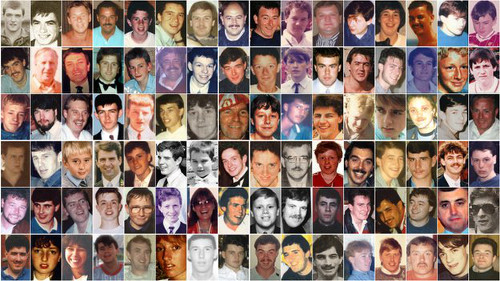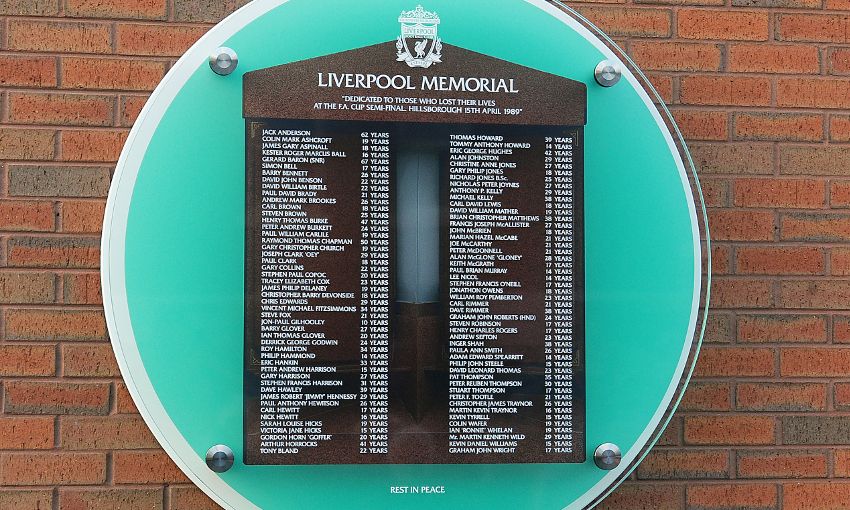Hillsborough inquests - February 25
The Hillsborough inquests commenced on March 31, 2014 and are the subject of reporting restrictions that have been imposed by the Attorney General's office. Liverpool Football Club is respectful of these restrictions and will therefore only be making available updates from other media channels for the duration of the inquest.

The report below - and the witness testimony contained within it - does not necessarily reflect the views of Liverpool FC. Please be aware that the reports on these pages will contain evidence about the day of the disaster which may be distressing.
To view archive reports from each day of the inquest hearings, click here.
Courtesy of the Liverpool Echo - February 25
The jury in the Hillsborough inquests heard the evidence of senior officers as the coroner continued summing up the case.
Sir John Goldring recapped the evidence of Roger Marshall, the superintendent in charge of Liverpool fans outside the ground at the FA Cup semi-final on April 15, 1989.
Mr Marshall, the officer who made the request for exit gates to be opened, told the court he felt as if officers were “in the midst of a battle we weren’t going to win” as the crowds built up outside the Leppings Lane turnstiles ahead of the 3pm kick-off.
The court heard that he requested the closure of Leppings Lane at 2.17pm but he said, in his view, the crowd congestion didn’t get bad until 2.30pm.
Mr Marshall said he spoke to Inspector Robert Purdy who told him he needed to open the gates and relieve the crush.
The coroner told the court: “He did not think where the fans might go.
“He said someone entering by gate C had five or six areas to go to.
“He said that ‘sadly it didn’t occur to me at that time’ that most would go down the tunnel, ‘one of the great regrets is that I did not wireless control and say look, we need a reception committee inside for this lot.”
Sir John told the jury that Mr Marshall made requests to open the gates over the radio between 2.47pm and 2.52pm.
Mr Marshall, who was 71 when he gave evidence in 2014, said: “It is a profound regret on my part that I did not say to control, there’s a mass of people coming through the gates, please ensure there’s a reception committee to meet them.
“So it is not just David Duckenfield’s or Bernard Murray’s responsibility, it is my responsibility as well.”
But, he agreed that match commander Mr Duckenfield and ground commander Mr Murray, who were in the control box, would have had time to put measures in place.
The coroner said: “He was asked, question, are you prepared to accept that Mr Duckenfield and Mr Murray should have put measures in place in that time they had available.
“Answer, yes.”
During his evidence, Mr Marshall told the court: “Of course I made mistakes.
“I was in the present. I couldn’t see into the future.
“I was doing my absolute utmost and very best to manage an increasingly deteriorating situation.”
The coroner also reminded the jury of a letter Mr Marshall’s solicitor had written to three of the families following complaints.
Sir John said: “When, as Mr Marshall described it, serious complaints were made against him in about 1990 by three families, Mr Marshall consulted a solicitor called Vincent Hale.
“On June 6 1990, Mr Hale wrote a letter on Mr Marshall’s instructions in what Mr Marshall finally accepted were sometimes offensive and you may think, members of the jury, intemperate terms.”
The coroner said the letter suggested “on no good basis” that evidence had been suppressed before the Taylor Inquiry.
Sir John said: “The comments made suggested Mr Hale was unaware that many who had died had come in through gate C.
“Among other things, the letter suggested drunk and late arriving fans caused the deaths.”
He added: “The letter said that, if the complaints proceeded, further distress would be caused and that the public may not differentiate between the innocent who were killed and those who survived or died in the circumstances which confirm the guilt.
“Mr Marshall did not accept that they were trying to scapegoat the fans for the disaster by turning popular fears of hooliganism to their advantage.
“He said the last thing he would have wanted was to threaten the three families.
“He said he would apologise to the families of the people who had died for the way in which he dealt with their complaints.”
But, when apologising Mr Marshall added the caveat that the disaster had many different causes.
The coroner also began to summarise the evidence of former superintendent Roger Greenwood, the commander inside the ground, and is expected to continue summing up evidence of senior officers when court resumes tomorrow.



